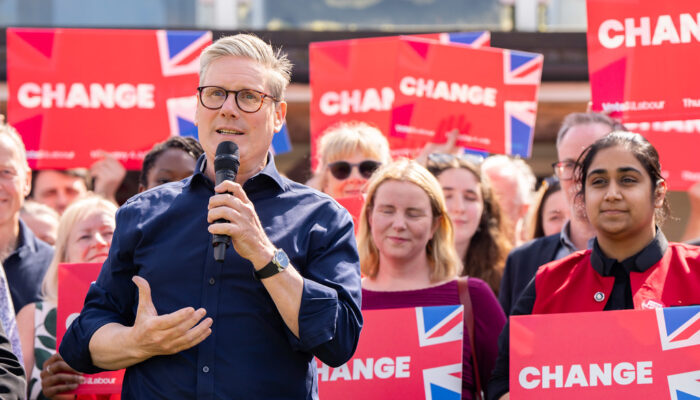New UK Government Rescinds ‘Rwanda Plan’ But Cruel System Remains
After their landslide victory in the 2024 UK General Election, one of the first policy announcements from the Labour government was to drop proposals to deport people seeking asylum who had entered the country without authorisation to Rwanda. In his first news conference as Prime Minister, Keir Starmer described the plan as ‘dead and buried before it started’. The Rwanda Plan was first announced in 2022 by the Conservative government under Boris Johnson. Modelled on Australia’s extra-territorial imprisonment of asylum seekers on Manus Island and Nauru, the UK sought to send people seeking asylum 7,000 km to the central African nation to have their claims processed. Details were vague but under the proposals, people who made successful claims would remain in Rwanda as refugees and would be barred from entering the UK. An agreement between the two nations was signed on 13 April 2022 by the UK’s Home Secretary Priti Patel and Rwanda’s Foreign Minister Vincent Biruta with £120 million being initially offered to Rwanda. The UK would also pay between £20,000 and £30,000 for the relocation and temporary accommodation of each person deported under the scheme.
However, the implementation was fraught with legal issues and controversy from the start. The first deportation flight was scheduled for 14 June 2022 with thirty people. This was reduced to seven people after individual legal challenges and eventually cancelled after an interim ruling from the European Court of Human Rights. The UK government would eventually pass the Safety of Rwanda Act in April 2024 as it attempted to remove legal barriers to the scheme by declaring Rwanda to be a safe country for relocation. This was despite the UK accepting 21 refugee claims from Rwandans after the scheme was first announced. Following the Act, the Home Office detained 5,700 people in view of transporting them to Rwanda. Yet, after announcing that a General Election would take place in July 2024, then Prime Minister Rishi Sunak stated that any flights would be put on hold until after the election and would only be guaranteed to take place if the Conservative Party remained in poweer. It was as if the detainees were being held as political hostages in a desperate attempt to attract a certain set of the British voting public.
The official logic behind the scheme was to deter people from seeking asylum in the UK and in particular reduce the increased number of people arriving by boat from across the English Channel following the UK’s exit from the European Union. Yet, more accurately it was a ‘state performance’ meant to convince a cynical public that immigration was being brought under control. Such performances are not always achievable or coherent in their aims and outcomes, but those overseeing the Rwanda Plan sought to gain politically even in failure by placing blame on ‘activist lawyers’ or international bodies such as the European Court of Human Rights.
Under fourteen years of Conservative rule, UK asylum policy has become increasingly unhinged and detached practically from deterrence if not rhetorically. It has become a system of ‘slow violence’ that seeks to punish people for the very act of claiming asylum. From Theresa May’s ‘Hostile Environment’ to the 2021 New Plan For Immigration and the 2024 Illegal Migration Act the previous government has ratcheted up its cruelty by increasing restrictions on asylum applications, appeals and options available to applicants. The Illegal Migration Act puts emphasis on deportations as it places a legal duty on the Home Secretary to remove anyone arriving irregularly to the UK, either to their country of origin or a safe third country. Through all of this the term ‘illegal immigrant’ has shifted from being the preserve of the far-right to being mainstreamed across policy, law, official discourse and media.
Yet, these policies and laws are part of a much longer trajectory within UK government’s handling of asylum. Over the past thirty years, under both Labour and Conservative administrations, an antagonistic system has been built up. This has included the introduction of indefinite detention, the near abolition of the right to work, the introduction of forms of temporary protection instead of indefinite leave to remain, the exclusion of asylum seekers from mainstream welfare provision and an ongoing culture of denial in which the majority of claims are refused in the first instance. People seeking asylum are also subject to dispersal as they are required to relocate on a no-choice basis to towns and cities across the UK while their claims are processed. The Rwanda Plan and the Illegal Migration Act would add deportation as a major pillar of the UK asylum system, alongside dispersal and denial. Keir Starmer’s announcement has put this in check to some extent, but the antagonistic system is deep and embedded. The Rwanda Plan may be ‘dead and buried’ but the cruelty of the asylum system is very much alive.
